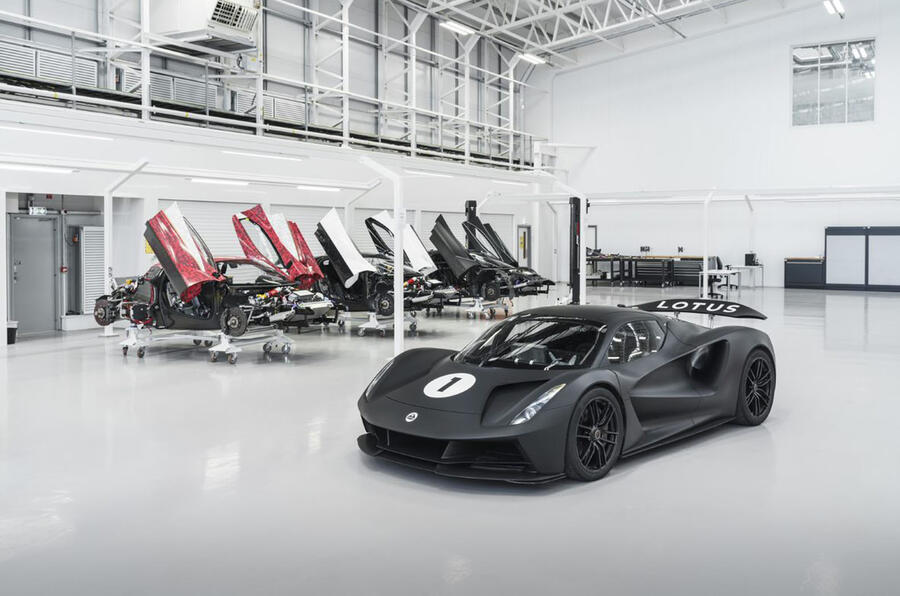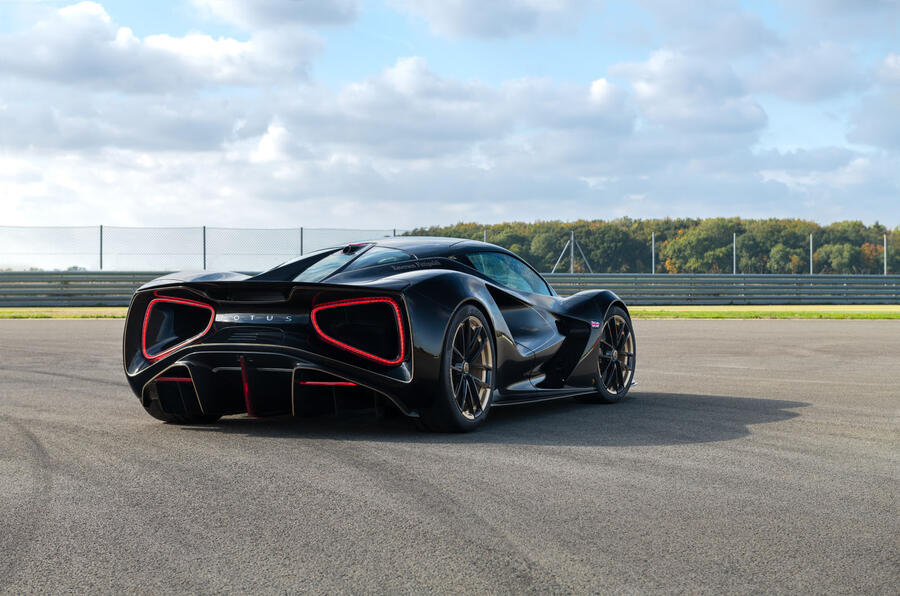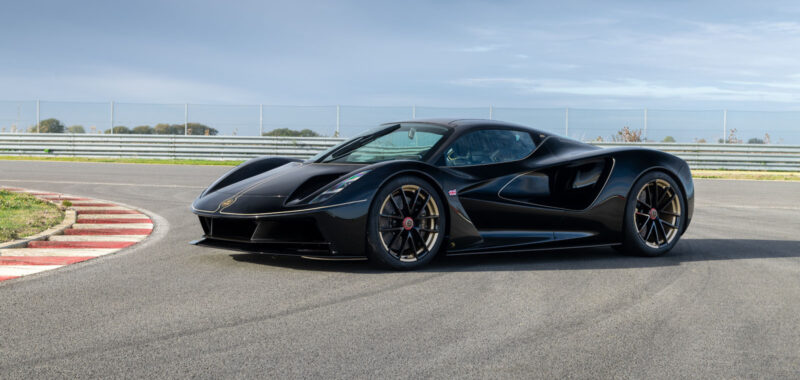
“At a critical point in the project delivery, we hit Covid, and that effectively stopped any global testing on that car, and a lot of our supply base and technology partners in that car were affected by it as well, so that was critical,” Balmer told Autocar.
He projected that Hethel will be producing the limited-run Evija for the next two years to “fulfil the demand from customers” but stopped short of confirming whether Lotus still plans to cap the build run at 130 units.
Autocar first drove an Evija prototype in April 2021 and expects to get behind the wheel of a production-spec car in spring 2025.
Balmer said Lotus wasn’t alone in its hypercar development programme being impacted by Covid.
“When you ‘re breaking the boundaries of technology – and this car in ‘X’ form was the third fastest car around the Nürburgring – you’re pushing the envelope as far as possible all the time, and when you’re doing that, there will be some unforeseens around the development of those vehicles.”

“Other hypercar launches have had a similar timeframe. I was involved in one in 2016, and it’s only now coming to market eight years later,” he continued, referencing the Valkyrie programme, which got under way while he was director of global marketing at Aston Martin.
“Other well-resourced brands out there have had a challenging time in breaking the boundaries of what they’re trying to do as well.”
Indeed, several recent hypercar programmes have been behind schedule: Mercedes-AMG delayed production of the One hybrid hypercar from 2019 to 2022, for example, and Rimac was a few months late launching the Nevera due to the pandemic.
“The good news for our customers,” continued Balmer, “is that they’re able to enjoy those cars from now.”

